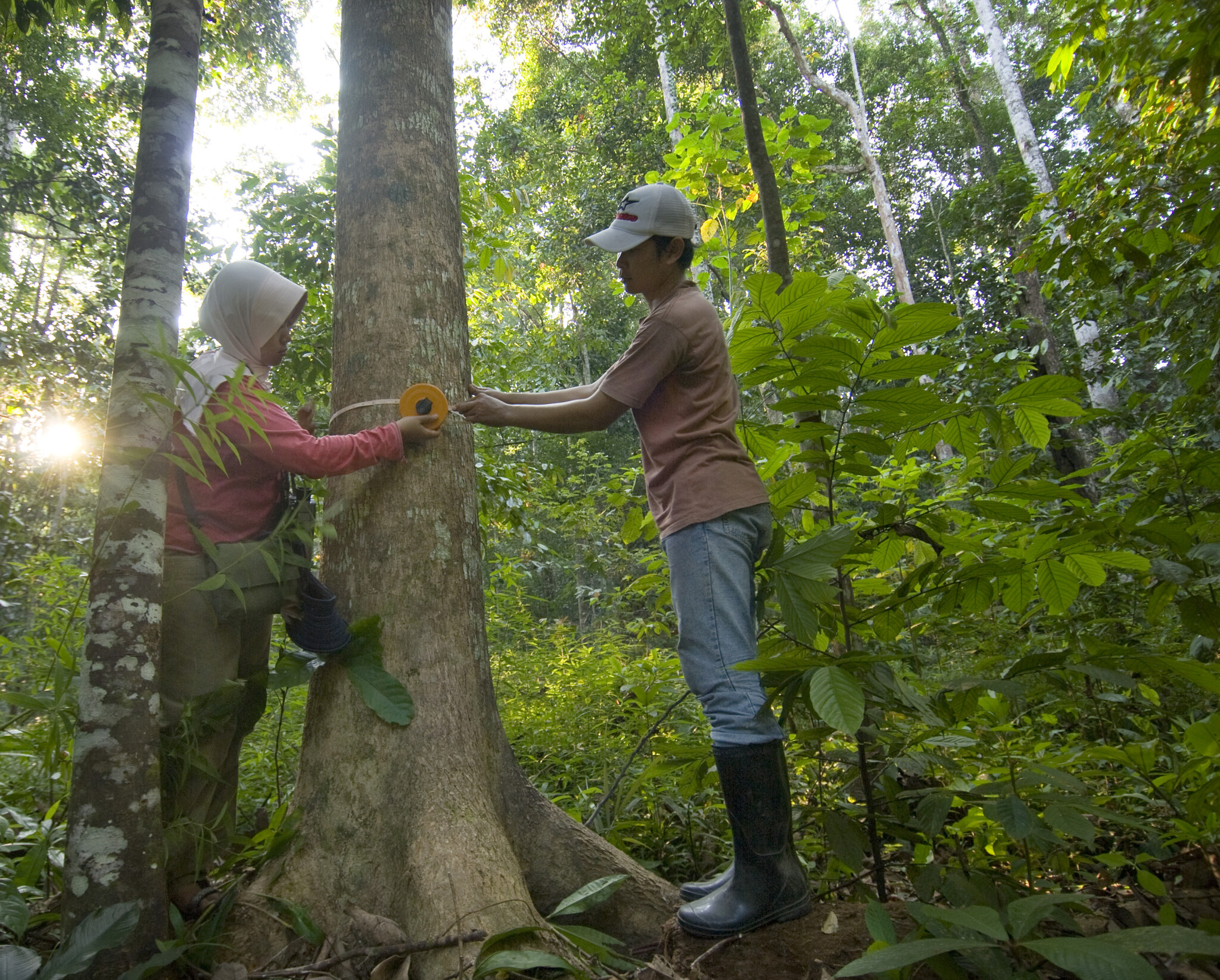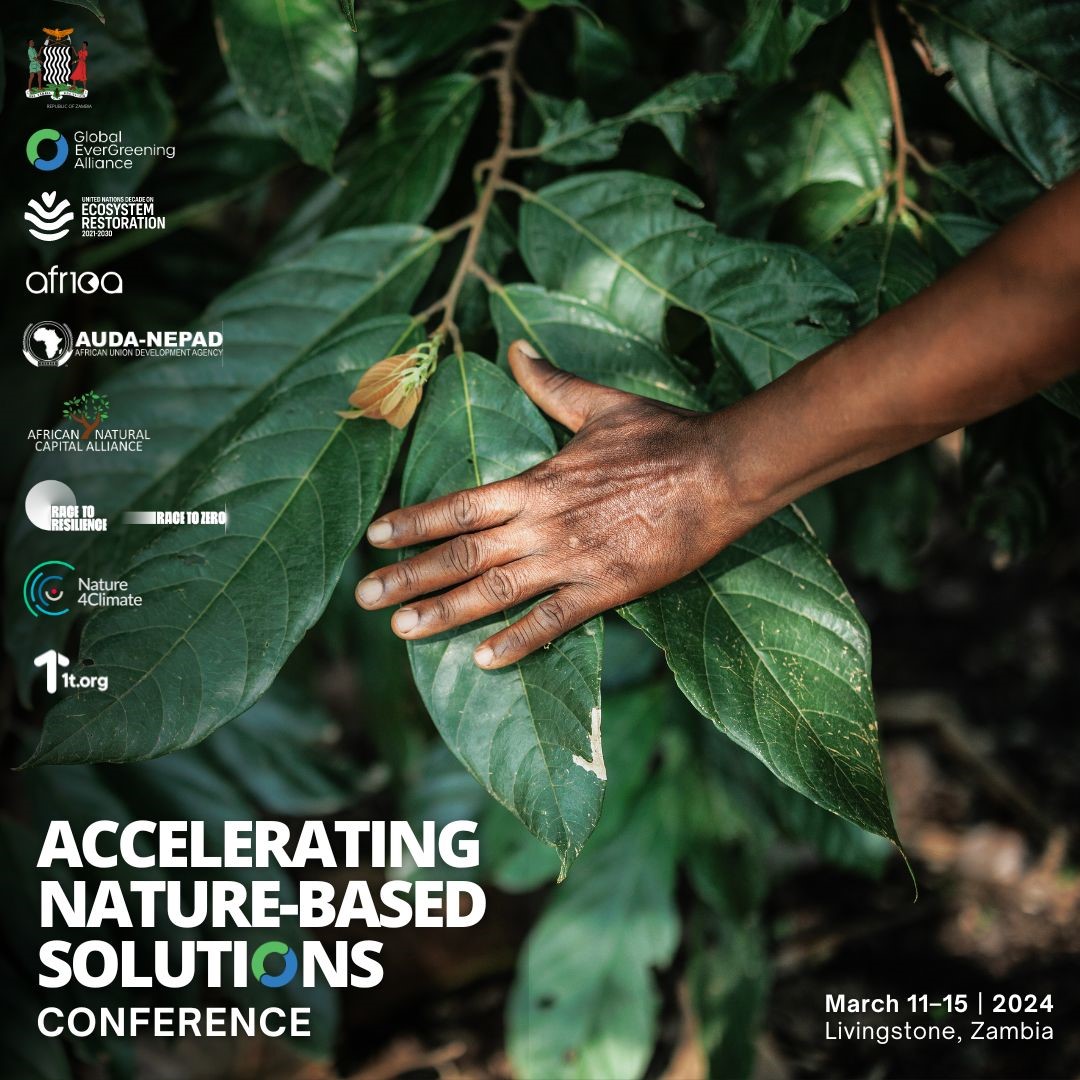
FEATURED NEWS
‘A big win for all of us’: EU moves to ban various green claims backed by carbon offset
BusinessGreen, Cecilia Keating, 18 January
BusinessGreen reports on newly approved rules in the EU Parliament that are designed to drive a major crackdown on misleading or unsubstantiated environmental claims that overly rely on carbon offset claims. The new rules, which should come into force in 2026, also introduce a blanket ban on claims that a product has a neutral, reduced, or positive impact on the environment if they are solely justified through the purchase of carbon offsets. The new rules are likely to further ratchet up pressure on carbon offset providers to deliver new standards and rules that are designed to better ensure projects enable promised emissions savings or removals, as well as a range of co-benefits. Mongabay shares its seven takeaways from a recent series covering carbon markets finding that moving away from ‘offsetting’ as a method to achieve carbon neutrality goals is emerging as a new standard in the sector. The article also covers the need for inclusion of Indigenous Peoples and local communities in decision-making, improving quality of credits and other major takeaways from 2023. Financial Times covers Guyana’s efforts to utilize carbon markets to protect its standing forests as its neighbor Venezuela seeks to annex a resource-rich territory with the intention of expanding mining in the region.
UK’s environmental ambitions ‘largely off track’, says watchdog
Financial Times, Attracta Mooney and Gill Plimmer, 18 January
The Financial Times covers the findings of the UK’s Office for Environmental Protection assessment of the nation’s environmental ambitions that state the government is set to only meet 10 percent of its goals. These include goals on climate change adaptation, managing exposure to harmful chemicals and safeguarding the supply of clean water. The Guardian dives into the long list of environmental protections the UK shed as part of its separation from the EU during Brexit. Diverging from EU standards is leading to banned toxic chemicals to be reintroduced in the UK, greenhouse gas reductions will slow down, water pollution will increase, and consumer products will be more likely to contribute to global deforestation.
EU Needs Carbon Pricing in Agriculture to Reach Net Zero, Advisers Say
Bloomberg, Ewa Krukowska, 17 January
Bloomberg reports that a new study by the EU’s European Scientific Advisory Board on Climate Change states that the region’s climate goals should include carbon prices applied to the agricultural sector. The scientists recommended shifting support away from emission-intensive agricultural practices like livestock production, towards lower-emitting products and activities, as well as introducing “some form of emissions pricing in the agricultural and land use sectors by 2031 at the latest.” These kinds of policies would likely reduce further nature loss in the EU, but would not account for overseas agriculturally driven nature loss. E&E News covers farmer protests in France combatting new regulations and taxes meant to address climate change and other environmental concerns. The Guardian carries a commentary from George Monbiot who ties the far-right political parties to recent farmer protests from around the world as a means to combat climate-related policies.
The Washington Post reports that Indonesia has been clearing tens of thousands of acres of densely vegetated peatland for farming, releasing massive amounts of carbon that had been sequestered below for centuries and destroying one of the Earth’s most effective means of storing greenhouse gases. Three years ago, when the pandemic disrupted food supply chains, Indonesian government officials launched an ambitious land-clearing operation in a push to expand the cultivation of crops and cut Indonesia’s reliance on expensive imports. By transforming 2,000 to 4,000 square miles of what environmental groups say is predominantly peatland into fields of rice, corn and cassava, the government projects that it will achieve self-sufficiency in food. Laws protecting forests have been amended to allow for the ongoing project, and President Widodo said his country wants to be a global supplier of agricultural products, feeding populations beyond its own.
‘Negative emissions’: Government gives planning green light to Drax BECCS project
BusinessGreen, Cecilia Keating, 16 January
BusinessGreen shares that the UK Government has granted development consent to the construction and operation of carbon capture technology at the Drax biomass power plant in Yorkshire. The government states that the technology will provide a “meaningful contribution to meeting the urgent need for carbon capture and storage (CCS) infrastructure to support the transition to net zero by 2050”, but critics claim there is a body of scientific analysis which suggests burning wood for power is often not carbon neutral given the time it takes for fresh saplings to grow, and in some cases can produce in more emissions than coal power plants. BusinessGreen also covers a report released by the UK governments National Audit Office that warns the government “cannot currently demonstrate” its approach to making biomass generators comply with sustainability requirements is adequate as there is a lack of robust evaluation that biomass energy can meet its sustainability claims. BusinessGreen also reports that a new consultation document circulating the UK government covering options for how to continue subsidies for large biomass power plants beyond 2027 will fan the flames of the UK’s biomass debate. DeSmog shares a commentary claiming that Drax is only interested in claiming government subsidies, not carbon, as the technology behind its carbon capture plans is unproven, lacks supporting infrastructure for managing the captured carbon and it exceedingly expensive.
Cookstove carbon offsets overstate climate benefit by 1,000%, study finds
The Guardian, Patrick Greenfield, 23 January
The Guardian covers a study that clean cookstove projects, one of the most popular types of carbon credit project types, are probably overstating their beneficial impact on the climate by an average of 1,000%. Across the world millions of people depend on cutting down forests and natural vegetation to cook their food, producing about 2% of global greenhouse gas emissions. By switching from smoky fuels to cleaner alternatives such as electric cookers, cookstove projects in the developing world can have major health, social and environmental benefits. Every year, an estimated 3.2 million people die prematurely from household air pollution caused by cooking with smoky fuels. The study claims carbon market projects that generate financing to deploy cleaner and safer cooking methods overstate their climate impact as most did not meet World Health Organization standards, according to the assessment by researchers at the University of California, Berkeley. Verra and Gold Standard, both leading certifiers of carbon credits, release statements disputing the study.
NEW INSIGHT

An important new study supported by leading scientific organizations lays out five core principles to ensure NCS can meet their potential to provide short- and long-term climate, biodiversity and societal benefits. The key principles outlined in the paper—nature-based, sustainable, climate-additional, measurable, and equitable—establish a comprehensive framework for identifying and implementing high-integrity NCS. Learn more about the study and how it can help clarify what is needed for NCS to succeed on the N4C website.
SPOTLIGHT- Accelerating Nature-based Solutions Conference – March 11th-15th
Join the world’s largest land restoration programming event – the Accelerating Nature-based Solutions Conference, in Livingstone Zambia, this March 2024. Set against the backdrop of the stunning natural wonder, Victoria Falls, the conference is a unique opportunity to strategise and take impactful action to accelerate the scaling up of nature-based solutions. Engage in field trips, workshops, and training, exploring topics such as Article 6 of the Paris Agreement and learning from technical experts and thought leaders from around the world.
FOR YOUR INFORMATION
World Economic Forum shares insights on how financial institutions can assess environmental risk, highlighting UNEP FI’s new Risk Centre. This will be a one-stop-shop for financial institutions to manage climate, nature and other sustainability risks and offer integrated solutions and resources to address the triple planetary crisis.
European Commission announces the start of pilot testing for the Deforestation Information System, which aims to facilitate due diligence statements for the new EU Deforestation Regulation. 100 stakeholders will participate in this testing phase.
Level, a conservation project developer, shares a paper on the results of their first social impact assessment on Carbon Tanzania’s Yaeda Valley REDD project. Using the Social Return on Investment methodology to measure the value people gained from the project it has been determined that for every $1 invested into the Yaeda Valley REDD project, local communities see a $25 Social Return on Investment.
Environmental Finance releases the Biodiversity Insight 2024 supplement, which includes articles on the case for investment allocations to natural capital, the outlook for natural capital in 2024, what investors need to know about nature, the birth of a biodiversity offset market, and a data-driven approach to nature risk and opportunity
Nature publishes a study on the carbon mitigation capacity of natural climate solutions under future climate change scenarios.
Global Forest Watch accepts applications for its Small Grants Fund and Tech Fellowship.
Global Canopy shares a case study from JGP Asset Management, showing how tackling deforestation using active ownership, creative financing, and nature restoration provides a holistic approach to driving the shift towards more sustainable commodity supply chains.
Science Direct shares a preliminary analysis on the role of forests in EU Member States’ National Recovery and Resilience Plans.
Novata shares a new carbon tracker, which aims to streamline businesses’ management of carbon emissions and ESG data, enabling them to track, measure, and report their emissions more accurately.
Clean Cooking Alliance features the story of a young Kenyan leader, Calvin Shikuku, working to advance sustainable solutions that address energy challenges while making a positive impact on communities.
Conservation International covers a new report addressing how sustainable agriculture can help farmers in Madagascar mitigate its climate vulnerabilities.
WCS features a new paper that analyzes highly productive marine areas to help the world achieve the protection of at least 30 percent of the planet by 2030.
WBCSD announces the release of sector-specific circularity metrics by the CTI Fashion Initiative. These tailored metrics are poised to redefine how circularity is assessed within the fashion and textiles value chain and help rally companies around common targets.
UNDP shares updates on a five-year initiative aiming to overhaul water resource management along the Incomati and Maputo River Basins across three countries – Eswatini, Mozambique and South Africa.
ISS announces the release of the Biodiversity Impact Assessment Tool, which enables investors to assess the impact of companies’ business and supply chain activities on biodiversity.
Nature shares five foundational principles of natural climate solutions (nature-based, sustainable, climate-additional, measurable, and equitable) and fifteen operational principles for practical implementation, based on a review of scientific literature and best practices.
Agri Investor releases a magazine on impact investing and its potential in agricultural sectors, particularly in developing markets.
CASE STUDY
N4C is compiling an index of NBS case studies, together with an interactive map, to highlight action on the ground. Each week, we will be choosing a case study to present, to help give concrete examples of work being done to bring NBS theory into practice.

Hiniduma Bio-link
WHERE: HINIDUMA, SRI LANKA
TYPE OF NCS SOLUTION: RESTORE
Hiniduma, located in the southwest of Sri Lanka, is a mixed agricultural community surrounded by one the island’s last few remaining rainforest ecosystems. The Hiniduma Bio-link Project aims to establish a biodiversity corridor between two large remnant disturbed rainforest patches – Singharaja & Kanneliya, and to conserve buffer zones around the forest edges through reforestation.
NUMBER OF THE WEEK – 1,000%
The average climate impact many clean cookstove carbon market projects overestimate according to a new study from the University of California Berkeley
GOOD NEWS
NGO raises funds to support Africa Green Wall via Earthshot
UK-based NGO Tree Aid has raised funds through US platform Earthshot Labs to support tree planting in Burkina Faso, part of Africa’s “Great Green Wall” to combat desertification, it said Wednesday. The Tond Tenga project aims to plant over 6.6 million native trees in Burkina Faso, a West African country with vast swathes of desert, and monetize the process with voluntary carbon credits. Funding is predicted to generate “over $30 million” in direct community financial benefits over the project’s lifetime.
